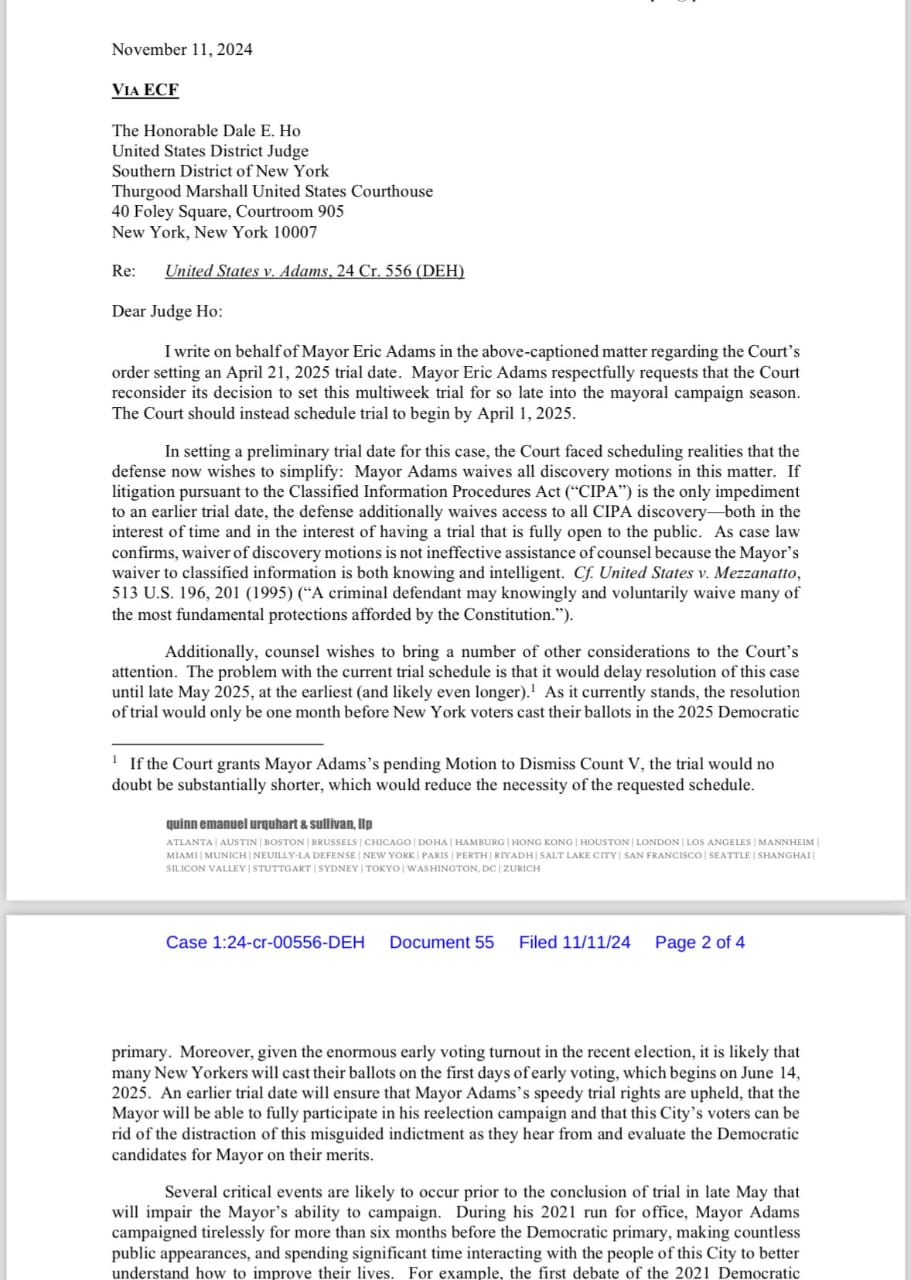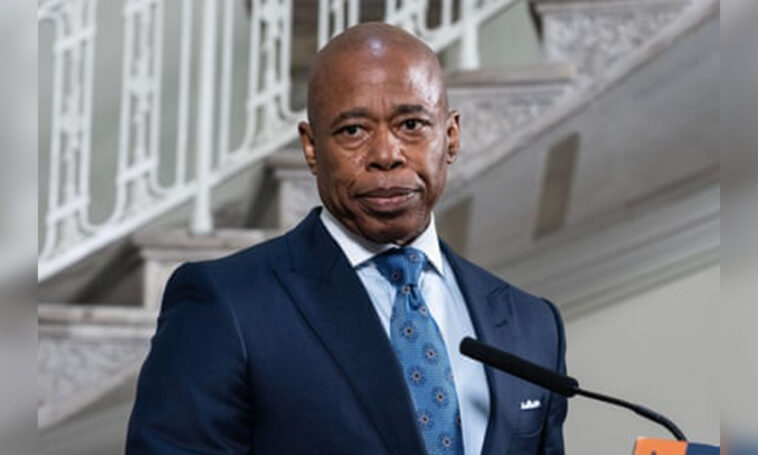New York City Mayor Eric Adams has requested a federal judge to set an earlier trial date for his upcoming corruption case, arguing that the current schedule would disrupt his re-election campaign. According to court documents, Adams, represented by his attorney Alex Spiro, asked that the trial begin on April 1 instead of the original April 21 date. Spiro argued that, under the current timeline, the trial would conclude in late May, leaving Adams with limited time to campaign before the Democratic primary.
In his letter, Spiro emphasized the importance of a timely trial for Adams’ campaign and the voting public. Spiro stated,
“An earlier trial date will ensure that Mayor Adams’s speedy trial rights are upheld, that he can fully participate in his re-election campaign, and that this City’s voters can focus on evaluating all Democratic candidates without the distraction of this misguided indictment,”
He expressed concern that an ongoing trial would overshadow Adams’ campaign and leave a “cloud” over his public image, which could impact the mayor’s standing with voters.
Adams, a former New York Police Department captain known for his tough-on-crime stance, pleaded not guilty in September to five federal charges, including bribery, conspiracy to commit wire fraud, and solicitation of a contribution from a foreign national. He has maintained his innocence, vowing to fight the charges and remain committed to his role as mayor.

Federal prosecutors claim that Adams engaged in a multi-year scheme to accept illegal campaign contributions, airline upgrades, and luxury hotel accommodations from Turkish nationals, including at least one government official. In exchange, Adams allegedly offered political favors. According to the indictment, U.S. Attorney Damian Williams described the scheme as an orchestrated attempt to “buy favor with a single New York City politician on the rise.” Adams is the first sitting New York City mayor to face criminal charges in the modern era, marking a significant chapter in the city’s political landscape.
Following his September indictment, Adams requested that the bribery charge be dismissed, arguing that the government’s allegations lacked specificity and clarity. He described the charges as “extraordinarily vague” and questioned the basis for the allegations. Prosecutors, however, strongly opposed the motion to dismiss, asserting that the evidence against Adams substantiates a pattern of illegal conduct. They argued that even if Adams viewed his actions as “routine,” the benefits he allegedly received amounting to tens of thousands of dollars—could legally be interpreted as bribery by a jury.
Prosecutors further criticized Adams’ defense, which characterized his actions as “common” among politicians. The prosecution countered that while Adams may consider it standard to accept substantial benefits in exchange for political influence, a jury could view these actions as unequivocally illegal. The U.S. Attorney’s Office reiterated the seriousness of the charges, underscoring the alleged quid pro quo nature of Adams’ exchanges with foreign nationals.
As the court deliberates over Adams’ request to expedite the trial, New York’s political community awaits further developments. The rescheduling could have significant implications for the city’s primary race, in which Adams faces various opponents who may capitalize on the indictment to challenge his leadership. Spiro underscored that an early trial could mitigate the distractions Adams faces, allowing voters to focus on his platform rather than the unresolved legal case.
This case also brings larger issues into focus, such as campaign finance ethics and political integrity. Adams’ situation shines a light on the responsibilities and vulnerabilities of public officials in accepting contributions, particularly from international sources. The indictment has intensified public scrutiny of Adams’ financial and political dealings, putting his reputation on the line as he seeks a second term.
As of now, the court has not responded to Adams’ request for the earlier trial date, which remains scheduled for April 21. The case has generated considerable public interest, especially given Adams’ stance on ethical governance. New Yorkers await the court’s decision, as the trial promises to impact not only Adams’ political career but also the broader landscape of the city’s government and campaign finance standards.





Join the Community and Be a Part of the Conversation
You must be logged in or registered to post a comment.